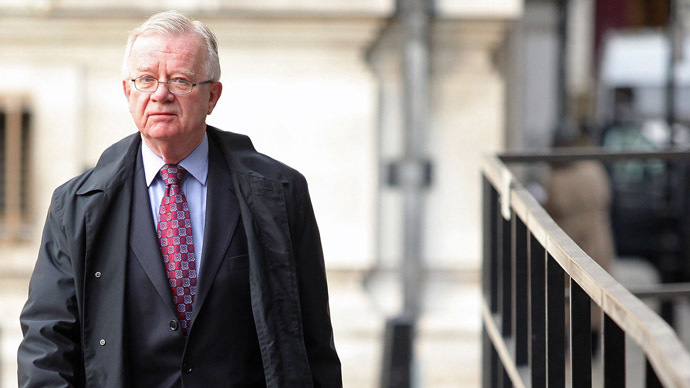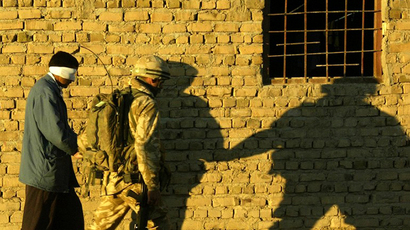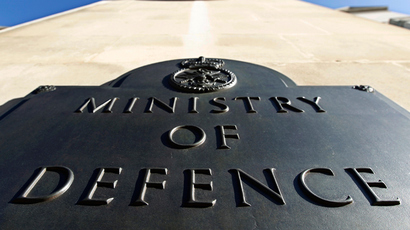Washington stalls UK's Iraq war inquiry? London claims 'no US veto' over Blair-Bush notes
Reports that the US will veto the disclosure of conversations between former British Prime Minister Tony Blair and former US President George W. Bush have been denied by the UK Cabinet Office, which stated that the US does not have a veto.
The communications between the leaders are seen as key pieces of
evidence in the inquiry into British involvement in the US-led
invasion of Iraq.
The inquiry, which began in 2009 and is led by Sir John Chilcot,
has been delayed because the exchanges have yet to be released by
the British government.
The spokesman for the Cabinet Office said the communications were a “particularly privileged channel of communication.”
“The Government is currently engaged in discussions with the
inquiry. All sides recognize that this raises difficult issues
involving legal and international relations considerations,”
the spokesman said. “Any suggestion that the US has a veto is
wrong.”
Sir John has written to British Prime Minister David Cameron
asking for access to 25 notes from Blair to Bush. He has also
asked for 130 records of phone conversations between Blair and
Bush, and Gordon Brown and Bush.
But according to senior diplomatic sources in the US and Whitehall who spoke to the Independent , officials in the White House and the US State Department have refused to declassify the pre- and post-war communications between George W. Bush and Tony Blair.
Media reports suggest the Bush-Blair exchanges are likely to
provide critical evidence of the covert way that Tony Blair
committed 45,000 British soldiers to the US-led invasion.

“The US [is] highly possessive when documents relate to the
presence of the President or anyone close to him. Tony Blair is
involved in a dialogue in many of these documents, and naturally
someone else is at the other end – the President. Therefore this
is not Tony Blair’s or the UK Government’s property to
disclose,” a top diplomatic source told the Independent.
“Chilcot, or anyone in London, does not decide what documents
relating to a US president are published,” the source
added.
The ‘special relationship’
Chilcot himself has described his conversations with the UK
government regarding the disclosure of the communications as
being difficult.
He said that over the last six months, he has asked for the
details of 200 cabinet-level discussions between Blair and
Bush.
The Cabinet Office was clear as to why some of the documents
requested by Chilcot needed to be handled sensitively.
“It is in the public’s interest that exchanges between the UK
Prime Minister and the US President are privileged. The whole
premise about withholding them [from publication] is to ensure
that we do not prejudice our relations with the United
States,” a spokesman told the Independent on Wednesday.
Cabinet Secretary Sir Jeremy Heywood has previously been
criticized for blocking the delivery of crucial documents for the
inquiry. Sir Menzies Campbell, the Liberal Democrat’s foreign
affairs spokesman who was a high-profile opponent to the Iraq
War, has called the delays “intolerable” and says the “full
story” must be told.
Commentators have speculated that a watered down, toothless conclusion may be released in the spring, which would absolve Tony Blair of any wrongdoing and would not upset the so-called “special relationship” between the US and the UK.
The other possibility is that the report will be so heavily
redacted that it will be meaningless and £8 million (US$12.8
million) of taxpayers’ money will have been wasted. The inquiry
is already many months behind schedule and was due to publish its
conclusions in 2012.














